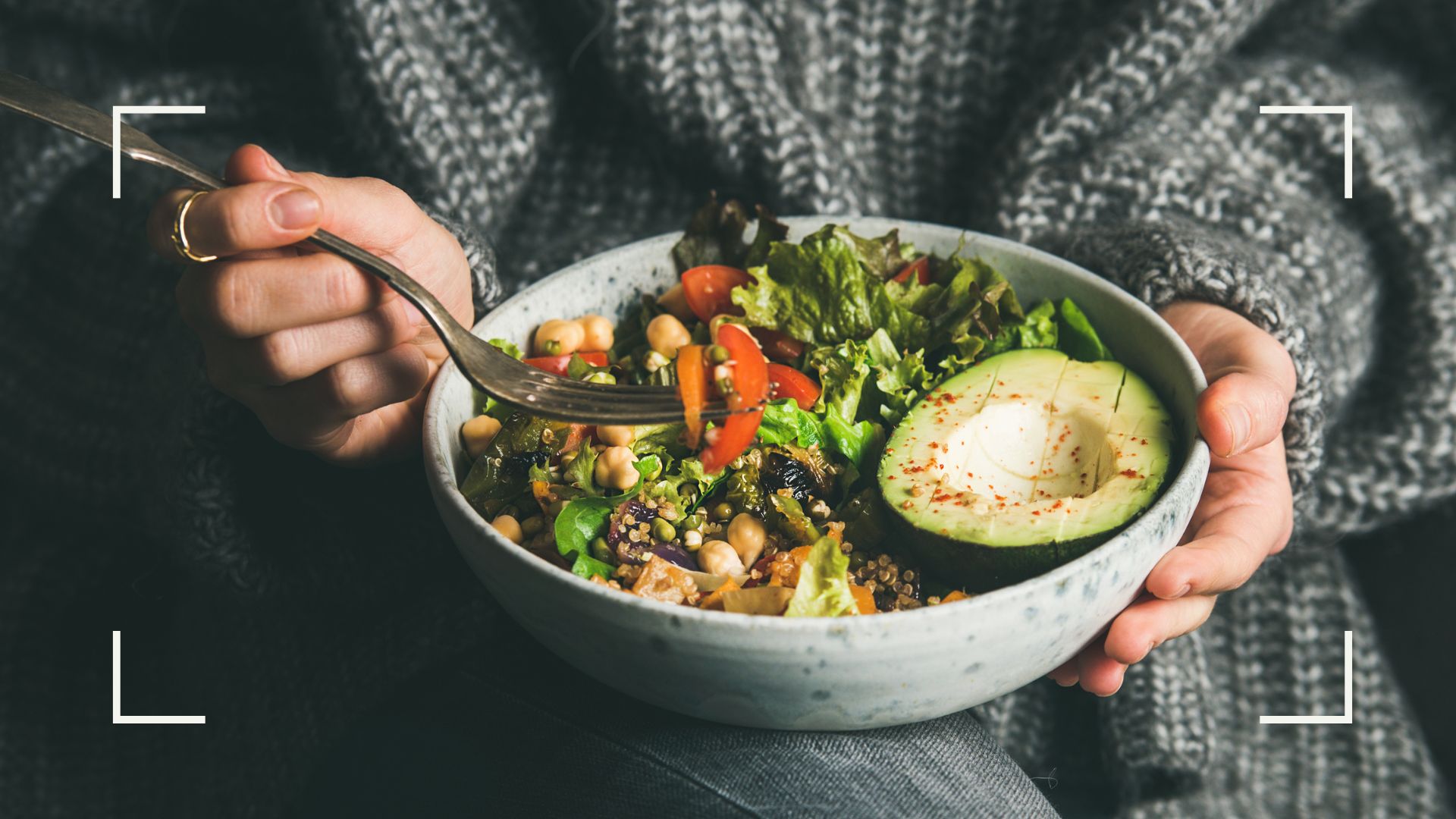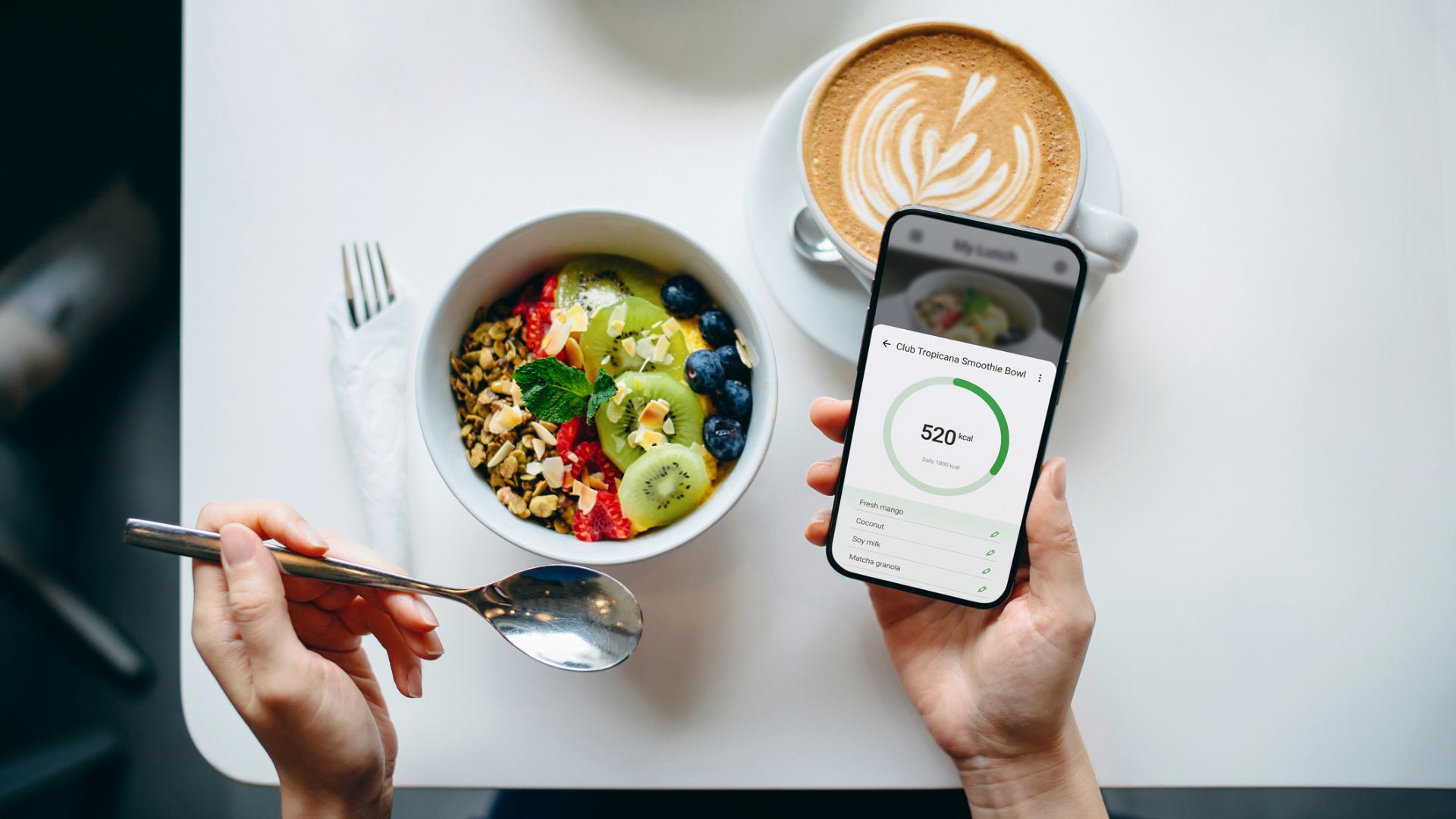The 8 most common intermittent fasting mistakes and how to avoid them
Nutritionists reveal the intermittent fasting mistakes beginners always make and how to avoid them


Intermittent fasting mistakes are so easy to make if you're new to this way of eating as it's so different from what most people are used to. Instead of eating breakfast, lunch, and dinner, with some snacks in between, intermittent fasting diets require you to restrict the time you have to eat throughout the day or week.
It's a very famous way of eating, with plenty of fans and critics alike, but intermittent fasting is essentially just another way of getting into a calorie deficit. Some people report alternative benefits alongside weight loss, like reduced inflammation and higher metabolism, but these are down to the individual and may only be possible if you can avoid the classic intermittent fasting mistakes.
Whether you're dieting but not losing weight with intermittent fasting or want to know more about the plan and how to eat less before trying it out for the first time, this is what three nutritionists have to say about the most common intermittent fasting mistakes and how you can avoid making them yourself.
Intermittent fasting mistakes
1. Eating whatever you want outside of the fasting period
The biggest of all the intermittent fasting mistakes people make when it comes to the plan is eating too many calories outside of their fasting period, says Sophie Trotman, a nutritionist specializing in functional medicine. "Some people think you can fast and then eat whatever you want during the feeding periods. You still need to be mindful of nutrition choices."
As mentioned, intermittent fasting is just another way of getting into a calorie deficit to lose weight. According to a review by Boston Medical Center, there's actually little evidence to support the idea that the fasting process itself helps people with weight loss more than any other type of restricted eating plan. So regardless of when you're eating and how long you're fasting for, you won't lose weight if you push yourself out of this deficit by eating too much.
How to avoid the mistake: Make sure you're in a calorie deficit by using a calculator to figure out what your deficit needs to be to make a difference. This is also one of the most common weight loss mistakes generally. You can start small with a 250-calorie deficit per week, leading to a loss of around 0.5lbs for most people, or increase this to 1lb per week with a 500-calorie deficit, a loss that both the NHS and the CDC agree is healthy for sustainable weight loss.
While it won't be suitable for everyone, many people find it beneficial to track how many calories they're eating every day with an app like MyFitnessPal. This makes it easier to figure out if you're going over your deficit threshold or if you're not eating enough to sustain your energy levels throughout the day.
Sign up to our free daily email for the latest royal and entertainment news, interesting opinion, expert advice on styling and beauty trends, and no-nonsense guides to the health and wellness questions you want answered.

2. Removing one of your daily meals
While it's important to stay within a calorie deficit if you want to lose weight with intermittent fasting, you may be working against yourself if you remove one of your main daily meals, says functional nutritionist Signe Svanfeldt.
"This can cause a big energy deficit, which can lead to many negative effects such as fatigue, nutrient deficiencies, and weakness," Svanfeldt, who works alongside the healthy eating app Lifesum, explains. "Eating too little or in an unbalanced way during the eating window can also lead to participants feeling too hungry and overeating in the next eating window. Instead, it's better to focus on eating balanced meals with enough nutrients and energy."
How to avoid the mistake: If you're following the 5:2 diet for intermittent fasting, make sure that you're still eating regularly during your fasting days to avoid one of the biggest intermittent fasting mistakes. The 16:8 diet makes this a little harder as you're restricting your eating time to certain hours of the day, but it's still important to eat regularly during this window rather than lots of food at the beginning and nothing else for the rest of the eight-hour window.
It's also important to note that intermittent fasting is not suitable for those with some conditions, such as polycystic ovarian syndrome (PCOS) and anyone looking to lose PCOS belly fat as a result, because it's essential to maintain insulin levels through the day with smaller meals. If you're in doubt about whether intermittent fasting is for you, speak to your doctor.
3. Eating the wrong foods
When the eating window begins, no matter the type of intermittent fasting diet you're following, it's fair that you'll want to prioritize the foods you enjoy the most. And while there's certainly space for these within the intermittent fasting plan, sticking to high-carbohydrate, high-sugar, and high-saturated fat foods during your eating window may be the mistake you're making.
"If you fill your eating window with nutrient-poor, energy-dense foods such as cookies, ice creams, or fizzy drinks, you're more likely not to get enough nutrients to support your body's functions," Svanfeldt explains. You're also more likely to have sugar cravings throughout the day when you're fasting, research from the University of California shows.
How to avoid the mistake: Instead, to avoid the biggest intermittent fasting mistakes, those following the plan should be focusing on a balanced diet. "Fiber-rich foods such as vegetables and whole grains; protein-rich foods such as eggs, poultry, fish, beans, and lentils; healthy unsaturated fats like nuts, seeds, avocado, and olive oil should all be prioritized."
They're nutrient-rich, she adds, which means that you'll still be getting the required nutrients - even if you're not eating for many hours through the day. Opting for the 80/20 diet rule may be beneficial for those who might otherwise struggle to get the nutrients they need while including the foods they enjoy the most.

4. Drinking tea and coffee during the fasting period
"Sometimes people don't realize that drinking coffee or tea with milk will break the fast," says Trotman. While a splash of milk is hardly going to make a difference, if you opt for a milky coffee like a latte, cappuccino, or sweetened coffee, then you'll be consuming additional calories (as many as 200 per beverage in many cases) perhaps without realizing it.
How to avoid the mistake: Black coffee is totally fine to have during the fasting period as it doesn't contain sugar or additional calories, so you could always opt for this if you want to stick religiously to the intermittent fasting process. Otherwise, herbal teas are still on the table and you should always drink plenty of water.
However, everyone may want to avoid having too much coffee or caffeinated tea while intermittent fasting as it can make the whole process a lot harder. After all, we all know what coffee does to the body when you drink too much of it. From disrupted sleep if you drink it too late to the jitters and gastrointestinal issues throughout the day, it's something to stay away from if you're already on a different eating pattern.
5. Not drinking enough water
Given the focus on not breaking the fast during particular hours, many people forget to drink water and some believe that it's even not 'allowed' during the fasting period. This is absolutely not the case, explains Trotman, and it's one of the biggest intermittent fasting mistakes to make. "It's so important to drink enough water as you aren't getting any water from food during the fasting time, so it's possible that you may become dehydrated," she says.
How to avoid the mistake: Make sure you've always got a bottle or glass of water beside you and be sure to refill it as soon as you've finished. Ideally, according to the NHS, we should be aiming for between six to eight cups a day - or around three liters.

6. Trying to do more exercise and intermittently fasting
If you're trying to learn how to get fit by increasing the amount you exercise per week and you're intermittently fasting, you could be making one of the biggest gym mistakes. While some people will find that the strict eating schedule helps them time their workouts perfectly, if you're working out but not losing weight then it's worth considering whether trying to do both at the same time is working for you.
Studies from Loughborough University have shown that exercise increases our appetite, after a small slump, thanks to the metabolic and behavioral stress that exercise puts on the body. During exercise, this stress causes the circulating orexigenic hormones, otherwise known as appetite hormones, in our body to increase, making us hungrier. It's a perfectly natural process but if you're looking to lose weight through intermittent fasting, it's something to watch out for.
How to avoid it: Exercise is an essential part of a healthy lifestyle, completely outside of weight loss, so it will always be a positive move to try and do more exercise. However, when it comes to intermittent fasting, timing your first meal shortly after your fasting window ends and before you start exercising could be the best way forward - especially if you're strength training.
7. Not getting enough sleep
Nutrition, exercise, decreasing stress, and getting enough sleep are the four pillars of healthy weight loss. So, if you're not getting enough sleep while you're intermittent fasting, you're making a big mistake that could be slowing down your progress.
"Sleep is vital for our wellbeing and incredibly important, no matter what diet you're following. Getting enough sleep can help to prevent diseases and even obesity," says Svanfeldt, pointing to a review by the University of Chicago and a study by the University of Groningen.
How to avoid it: Avoid this classic intermittent fasting mistake by learning how to sleep better if you struggle with setting a good bedtime routine for yourself. This includes figuring out the best time to wake up and fall asleep every day, along with improving sleep hygiene for many people.
8. Fasting for too long
While the fasting period is essential for any weight loss, fasting for too long can have a detrimental impact on your health and it's one of the biggest intermittent fasting mistakes. Along with the short-term issues, like feeling fatigued, lethargic, anxious, and irritable thanks to the lack of food, it wreaks havoc on our hormones, nutritionist Trotman says. "Fasting for a long period can wreak havoc on female hormones, especially in women of reproductive age and especially when combined with intense exercise and caffeine intake," she says.
This is because cortisol levels are normally highest in the morning and fasting, fasted training, and caffeine before breakfast can all raise cortisol levels again, she explains. "It's damaging in the long-term because our hormones act like an orchestra. When one is playing up, it disrupts the whole group. Therefore, this spike in cortisol can disrupt other female hormones." And a change in progesterone or estrogen levels, for instance, is significant because these have a direct impact on our body weight, alongside muscle, bone, and hair growth.
How to avoid it: Make sure you only fast for a maximum of 16 hours. This is all the time the body needs to enact the benefits of intermittent fasting, according to a study by scientist Roger Collier.

How to do intermittent fasting
If you want to try intermittent fasting without making the classic mistakes, be sure to stick to the expert-approved diets. These are the 5:2 diet and the 16:8 diet, Trotman explains, and there's evidence from the University Hospital of South Manchester that they work equally as well as each other to elicit a calorie deficit for weight loss.
5:2 diet
This is the most famous intermittent fasting diet and it's also known as alternative day fasting (ADF), explains Trotman. "ADF involves a rotation of fasting days, where fewer or no calories are consumed and feasting days where normal or surplus amounts of calories are consumed," she says. "Definitions vary greatly, with some stating that fasting days should involve no food at all while others are modified and allow for 25% of normal calorie intake on such days."
The number of fasting days someone might have in a week also varies between plans, which can be a good method if you like to eat out.
16:8 diet
While the 5:2 diet is alternative day fasting, the 16:8 diet is based on the time of day that you eat. "It's 16 hours of fasting and eight hours of eating," Trotman says. "People choose different fasting and eating windows. Time-restricted intermittent fasting can be beneficial if you are someone who snacks a lot, as you are reducing the eating window time, which can be beneficial for discipline."
Is intermittent fasting healthy?
Whether intermittent fasting is healthy or not depends on who you ask. As with everything health-related, it's all personal to the individual and how their body works. There is plenty of evidence, including leading studies by Wake Forest School of Medicine and the University of Colorado, to suggest that intermittent fasting works to elicit weight loss, it's sustainable over a longer period than many crash diets, and is fully customizable to an individual's calorie deficit threshold.
There are also some serious potential mental health impacts to consider with intermittent fasting, as with any restrictive diet, explains nutritionist Jess Hillard. "Restricting yourself to only eat between certain times of the day can hugely impact your relationship with food. Banning food at certain times gives negative connotations towards food and eating, and diets like these can lead to long-term effects."
Instead, Hillard, who works with leading sports nutrition brand, Warrior, suggests a different approach: intuitive eating. "Tune into your hunger cues after and before each meal, eating without distractions and eating when you truly feel hungry."
For those who want to lose weight and have the financial facilities to do so, Hillard also recommends working alongside a registered nutritionist or dietician to learn portion sizes and to work on your individual goals, rather than going ahead with restricted eating.

Grace Walsh is woman&home's Health Channel Editor, working across the areas of fitness, nutrition, sleep, mental health, relationships, and sex. She is also a qualified fitness instructor. In 2025, she will be taking on her third marathon in Brighton, completing her first ultra marathon, and qualifying as a certified personal trainer and nutrition coach.
A digital journalist with over seven years experience as a writer and editor for UK publications, Grace has covered (almost) everything in the world of health and wellbeing with bylines in Cosmopolitan, Red, The i Paper, GoodtoKnow, and more.